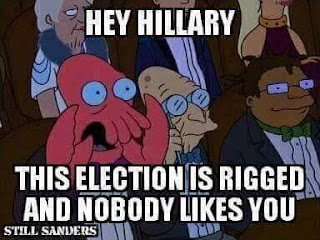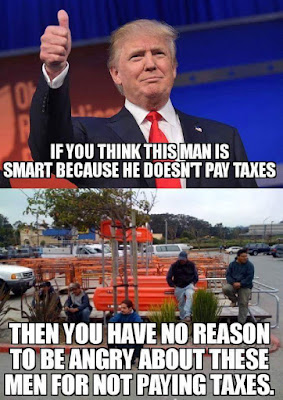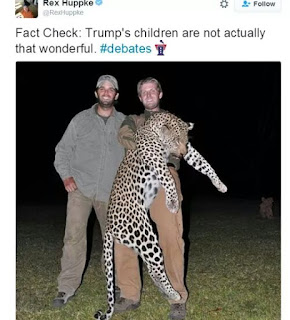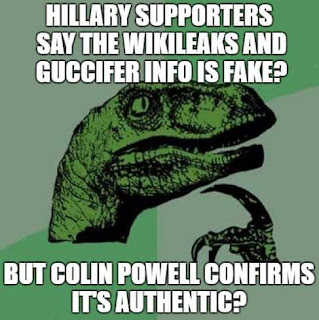The Presidential election of 2016 has been an unprecedented event: information leaks, the reprehensible and public behavior of one of the candidates, and a general distrust by the American people appears to have led to an increase in political speech. The meme-- an image file, circulated by individuals or groups on the Internet, often through Facebook groups or Twitter-- has become an important part of our national political dialogue. Prior to Hillary Clinton gaining the nomination of the Democratic Party, the term "Bernie Bro" was applied by the mass media to those individuals who devoted time and resources toward the production and dissemination of electronic speech (frequenting such Facebook groups as "Bernie Sanders' Dank Meme Stash"). Following Hillary's nomination, political speech on Facebook continued, amplified. Unlike political speech filling ordinary text boxes, images online command great presence, filling the screen with an idea that is hard to ignore.
The meme has become a homegrown political cartoon: a screen capture of another's tweet, an outright manipulation of an image, or an image from popular culture, with text imprinted on it (memegenerator.net is one source for the creation of original memes). Many memes reference popular culture, drawing from still images taken from television programs or feature films. Some memes feature cartoon characters (SpongeBob SquarePants is an oft-used source for memes, perhaps for its vibrant color and playful characters). Some meme creators include their own imprint or Twitter handle, hoping to attract attention to their 'brand' online; others create memes anonymously. Some organizations, including Anonymous, have become increasingly active in creating memes during this election cycle.
The memes presented here have been culled from various Facebook groups, and are presented here as a resource and document towards understanding this new and unique manifestation of free speech, and individuals' participation in the political process. The source of these memes-- Facebook-- is by nature transitory, as any meme creator and/or poster may remove their content whenever they choose. It is my view that memes are, by definition, created with the intention of being freely shared, usually by those who support the idea or view presented. Thus, these memes are presented here without attribution. Some of these memes contain adult themes and offensive language; it is unfortunate that these themes have come to dominate the discourse surrounding the American political process. This author does not endorse or condone any specific speech, thoughts, or ideas presented in the memes below. For more discussion of memes, see my two previous blog posts, "Son Of Meme Hell" and "Meme Hell."
Memes will exist after the Presidential election of 2016. Some have used memes to comment on local and state elections, as well as larger cultural issues. The development and popularity of the meme is important to understanding how we're using our virtual communication platforms. Memes-- as a society-- are changing the way we talk to each other about what's important to us.
















































































































































































































No comments:
Post a Comment